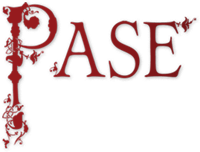Table of Contents
Top of page
Discussion
Bibliography
Forms
Distribution Map
Property List
People of this Name
Bottom of page
Cadwallon
Male
DWP
4 of 5
Discussion of the name
The name normalized here as Cadwallon is a masculine name evidenced in both Old Welsh and Old Breton and so must have existed in Old Cornish as well. In Old Welsh the name comprised the elements cad ‘battle’ and guallaun ‘good, best’, and the Old Cornish forms are likely to have been very similar (Rivet and Smith 1979: 271-2; Padel 1985: 42, 117). If so, and if this is the name represented by the DB form Caduualant, then the final ‘t’ of the DB form is presumably inorganic (von Feilitzen 1937: 95-6, 213), especially since a final /nt/ is likely to have become /ns/ by the late eleventh century in Old Cornish (Jackson 1953: 507-8).It is not certain, however, that the DB scribe’s form is correct. In the corresponding entry in Exon Domesday (202b1), the scribe (one of the two main scribes involved in writing Exon) appears initially to have written Caduualar but subsequently to have altered this final ‹r› to a ‹d› to make it Caduualad before adding his usual abbreviation mark to indicate the nominative inflection –us for the Latinized form. This Exon form is most readily interpreted as representing an Old Cornish form of the Old Welsh name Cadwaladr, which comprised the elements cad ‘battle’ and gualadr ‘lord, leader’.
There are two straightforward possibilities here. Either the DB scribe made an error in reading then transcribing this conflated ‘r-with-d’ letter in Exon as ‹nt›, in which case the name should be Cadwaladr; or the Exon form was incorrect and the DB scribe, with access to other information now lost, corrected it to Cadwallon in his text (but did not render this name in its contemporary Old Cornish form). It does not seem possible to resolve this conundrum and so the DB head-form Cadwallon is retained here.
People of these names recorded before 1066 are Cadwallon 1, a king of Gwynedd who died in 634, and his son Cadwaladr 1, who also ruled Gwynedd and died in 682. Although both men were historical figures of the seventh century they also became the foci for later Welsh myth and it is reasonable to suppose that at least some of these tales circulated in Cornwall as well together with the continued popularity of the personal names (Bromwich 2006: 298-302).
Bibliography
Bromwich 2006: ed. R. Bromwich, Trioedd Ynys Prydein: the Triads of the Island of Britain, 3rd edn. (Cardiff, 2006)von Feilitzen 1937: O. von Feilitzen, The Pre-Conquest Personal Names of Domesday Book, Nomina Germanica 3 (Uppsala, 1937)
Jackson 1953: K. H. Jackson, Language and History in Early Britain: a Chronological Survey of the Brittonic Languages 1st to 12th c. A.D. (Edinburgh, 1953)
Padel 1985: O. J. Padel, Cornish Place-Name Elements, English Place-Name Society 56/57 (Nottingham, 1985)
Rivet and Smith 1979: A. L. F. Rivet and C. Smith, The Place-Names of Roman Britain (London, 1979)
Forms of the name
Spelling in Domesday Book: CaduualantSpelling in Exon: Caduualadus
Forms in modern scholarship:
von Feilitzen head form: Caduualant
Phillimore edition: Cadwalant
Alecto edition: Cadwalant
Distribution map of property and lordships associated with this name in DB
List of property and lordships associated with this name in DB
Holder 1066
| Shire | Phil. ref. | Vill | DB Spelling | Holder 1066 | Lord 1066 | Tenant-in-Chief 1086 | 1086 Subtenant | Fiscal Value | 1066 Value | 1086 Value | Conf. | Show on Map |
|---|---|---|---|---|---|---|---|---|---|---|---|---|
| Cornwall | 4,6 | Nancekuke | Caduualant | Cadwallon 'of Nancekuke' | unnamed canons of Bodmin | unnamed canons of Bodmin | Berner 'of Hornacott' | 1.00 | 0.50 | 0.50 | A | Map |
| Totals | ||||||||||||
